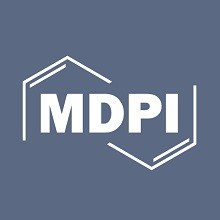
دانلود مقاله مدل ارزیابی کیفیت بهداشت و درمان
چکیده
مقدمه
آثار و پروژه های مرتبط
مدل ارزیابی کیفیت مراقبت های بهداشتی
الگوریتم تشخیص پرت بر اساس آمار
الگوریتم تشخیص بیرونی بر اساس k-نزدیکترین همسایه (KNN)
یک الگوریتم تشخیص بیرونی مبتنی بر KNN بهبود یافته
نتایج تجربی
نتیجه گیری
منابع
Abstract
Introduction
Related Works and Projects
Healthcare Quality Assessment Model
Outlier Detection Algorithm Based on Statistics
Outlier Detection Algorithm Based on k-Nearest Neighbors (KNN)
An Improved KNN-Based Outlier Detection Algorithm
Experimental Results
Conclusions
References
چکیده
با رشد بسیار سریع داده ها در صنایع مختلف، ;کلان داده ها به تدریج توسط مردم شناسایی و ارزش گذاری می شوند. کلان داده های پزشکی، که می توانند به بهترین نحو نشان دهنده اهمیت ارزش داده های بزرگ باشند، مورد توجه طرف های مختلف نیز قرار گرفته اند. در عربستان سعودی، ارزیابی کیفیت مراقبت های بهداشتی بیشتر بر اساس تجربیات انسانی و روش های آماری پایه است. در این مقاله، ما یک مدل ارزیابی کیفیت مراقبتهای بهداشتی را بر اساس لان داده های پزشکی در منطقهای از عربستان سعودی پیشنهاد کردیم که روشهای ارزیابی سنتی و تکنیکهای مبتنی بر یادگیری ماشین را ادغام میکند. دادههای بهداشت و درمان پس از پردازش نویز دقیق و مؤثر بودهاند، و دادههای پرت میتوانند اطلاعات کیفیت پزشکی خاصی را منعکس کنند. یک الگوریتم k-nearest همسایه (KNN) ارتقا یافته پیشنهاد شده است و پیچیدگی زمانی آن کاهش یافته است تا برای پردازش کلان داده ها مناسب تر باشد. یک شاخص پرت بر اساس روش های آماری و الگوریتم ارتقا یافته KNN ایجاد شده است. نتایج تجربی نشان داد که رویکرد پیشنهادی پتانسیل خوبی برای شناسایی بیمارستانهایی با لاهبرداری مالی و مراقبتهای پزشکی با کیفیت پایین دارد.
توجه! این متن ترجمه ماشینی بوده و توسط مترجمین ای ترجمه، ترجمه نشده است.
Abstract
With the extremely rapid growth of data in various industries, big data is gradually recognized and valued by people. Medical big data, which can best reflect the significance of big data value, has also received attention from various parties. In Saudi Arabia, healthcare quality assessment is mostly based on human experience and basic statistical methods. In this paper, we proposed a healthcare quality assessment model based on medical big data in a region of Saudi Arabia, which integrated traditional evaluation methods and machine learning based techniques. Healthcare data has been accurate and effective after noise processing, and the outliers could reflect certain medical quality information. An improved k-nearest neighbors (KNN) algorithm has been proposed and its time complexity have been reduced to be more suitable for big data processing. An outlier indicator has been established based on statistical methods and the improved KNN algorithm. Experimental results showed that the proposed approach has good potential for detecting hospitals with financial fraud and poor-quality medical care. View Full-Text
Introduction
Big data is data collection [1] with a large capacity, many types, fast access and high application value. Globally, big data is developing rapidly, and data has become a fundamental resource for all industries and even countries. It has become a computer technology and service industry that collects, stores, and data mines data from a wide range of sources, in various formats, and in large quantities, and then obtains new knowledge, new values, and new capabilities.
Conclusions
For the establishment of outlier indicators, healthcare data is the real data of each item. After noise processing, the availability of the data is very high and the outliers themselves contain a lot of useful information. Outlier detection based on these data can explain the healthcare quality of the hospital from the perspective of data outliers. In this paper, the statistical outlier detection algorithm based on the Gaussian model and the ratio of the outlier proportion of each hospital obtained by the improved KNN algorithm are used as the outlier index in this work. Experimental results have proven that the proposed evaluation method can reflect a certain degree of healthcare quality, especially for the detection of hospitals with fraudulent finance and medical loopholes.
